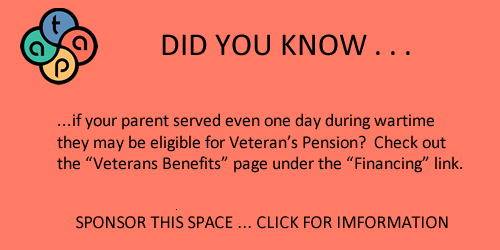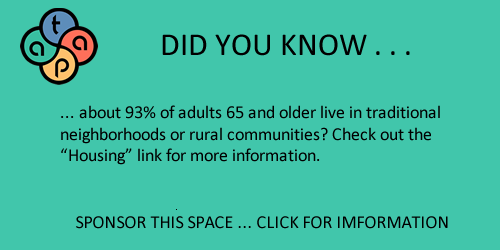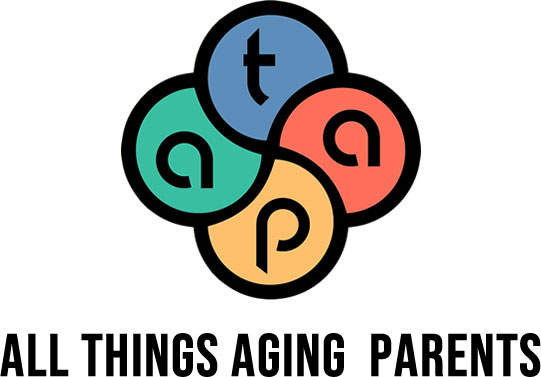Previous Insights
The Value of Caregiving
Marianne Smith
I was having lunch the other day with a new friend. We have so much in common – both of us children from later in the life of our parents, caring for them through the end of their lives, both wanting to use our experience with our parents to help others by providing them with information and resources to make their journey easier than ours. But she said to me, “I have trouble labeling myself as a caregiver. My parents never lived with me in my own home like yours did.” This woman, an only child with no husband or children, helped her parents through health crises, including dementia, managed their medications, bathed them, changed adult diapers, carrying all of that stress on her own. But because she hadn’t had them live with her, she didn’t feel like a “real” caregiver!
Why is it that we hesitate to acknowledge that we are caregivers for our loved ones? Is it the nature of the word? Caregiving. A word that, in and of itself, doesn’t sound scary, but still we shy away from it – afraid it will consume us. And sometimes it does. Does it go to the heart of “Who am I really?” Is it because it seems like such a thankless job at times? Let’s face it, caregiving isn’t sexy – no one wants to go around saying, “I’m a caregiver for my parents” like you would say, “I’m a buyer for Giorgio Armani.”
Or does our hesitation say more about how our culture values those who care for others? Why is it that although there are 44 million unpaid family caregivers in the US each one of us feels like we’re in it alone? We each feel like this is just “something we do” instead of feeling like a contributing member of society (often with multiple jobs). More than that, we are the glue that holds lives together. Without family caregivers, just imagine how overwhelmed the US healthcare system would be! The economy! Imagine the loss of quality of life!
According to AARP and Caregiver.org, “The value of services provided by informal caregivers has steadily increased over the last decade, with an estimated economic value of $470 billion in 2013, up from $450 billion in 2009. At $470 billion in 2013, the value of unpaid caregiving exceeded the value of paid home care and total Medicaid spending in the same year, and nearly matched the value of the sales of the world’s largest company, Wal-Mart ($477 billion).”[1]
A block of 44 million people with an estimated economic value nearly equal to Wal-Mart! One would think we would be catered to by every
company and politician on the planet. But we are in the shadows. We are unrecognized, except by those we care for…who sometimes remember that we’re there to help them. Now I don’t know about you, but I don’t want Mother Teresa status. Frankly, caregiving is too tiring to accept accolades. But what if we began the change of valuing those of us who care for our loved ones – full- or part-time, while holding down “real jobs” or raising our own children, while they live with us or in another place, whether they deal with chronic illness or dementia. What if the 44 million of us elevated the status of caregiver to a badge of honor? What if, when we meet someone else in the doctor’s office with their parent, we nodded to them and gave them the secret “I know what you’re going through” look of understanding? Suppose, if you have a friend who starts caring for their loved one you posted something encouraging on their Facebook page.[2]
Find people, organizations, or support groups (online or in-person) who appreciate you while you appreciate others. Here are a few that I am aware of: Daughterhood.org, Dementia Care Advocates, Alzheimer’s Association, the Caregiver Space Community… What are others that you know of? Please comment with your favorites so we can all benefit.
Let’s find the time to say, unapologetically, “Yes, I am a caregiver on top of everything else I do in my life.” And let’s value each one of the 44 million of us who do what it takes to hold our loved ones’ lives together. I can imagine that with the silver tsunami of aging adults heading our way, we will be the forerunners of a new age of appreciation.
[1] AARP Public Policy Institute. (2015). Valuing the Invaluable: 2015 Update. https://www.caregiver.org/caregiver-statistics-demographics
[2] Check out Senior Shower Project to honor caregivers. Their purpose is, “We love caregivers so much that we created a party for them. A Senior Shower® is a party that celebrates the life milestone of becoming a senior caregiver for an older adult in a family or community.”


The information contained in this website is provided as a service to the Internet community, and does not constitute legal or medical advice. All Things Aging Parents works to provide quality information, but we make no claims, promises or guarantees about the accuracy, completeness, or adequacy of the information contained in or linked to this website. Information should be researched and used in light of the specific circumstances of each case. Because laws and policies are constantly hanging, nothing provided here should be used as a substitute for professional advice.
Senior care is a challenging and constantly changing topic. In order to stay relevant to your needs, ATAP welcomes your comments and suggestions. Please email us at: info@allthingsagingparents.com
All Things Aging Parents helps families during the overwhelming times of changing family dynamics and responsibilities. We don't want to add stress to this process so we offer our information free of commitment. Our sponsors make this possible. Please click here for more information about becoming a sponsor.
Privacy Policy

